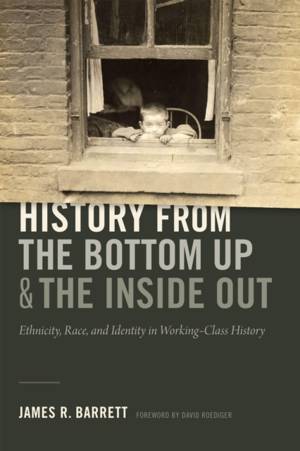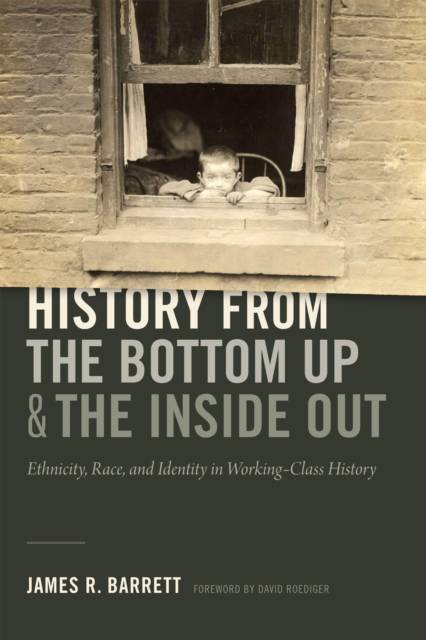
- Afhalen na 1 uur in een winkel met voorraad
- Gratis thuislevering in België vanaf € 30
- Ruim aanbod met 7 miljoen producten
- Afhalen na 1 uur in een winkel met voorraad
- Gratis thuislevering in België vanaf € 30
- Ruim aanbod met 7 miljoen producten
Zoeken
History from the Bottom Up and the Inside Out
Ethnicity, Race, and Identity in Working-Class History
James R Barrett
Hardcover | Engels
€ 213,95
+ 427 punten
Uitvoering
Omschrijving
In History from the Bottom Up and the Inside Out James R. Barrett rethinks the boundaries of American social and labor history by investigating the ways in which working-class, radical, and immigrant people's personal lives intersected with their activism and religious, racial, ethnic, and class identities. Concerned with carving out space for individuals in the story of the working class, Barrett examines all aspects of individuals' subjective experiences, from their personalities, relationships, and emotions to their health and intellectual pursuits. Barrett's subjects include American communists, "blue-collar cosmopolitans"-such as well-read and well-traveled porters, sailors, and hoboes-and figures in early twentieth-century anarchist subculture. He also details the process of the Americanization of immigrant workers via popular culture and their development of class and racial identities, asking how immigrants learned to think of themselves as white. Throughout, Barrett enriches our understanding of working people's lives, making it harder to objectify them as nameless cogs operating within social and political movements. In so doing, he works to redefine conceptions of work, migration, and radical politics.
Specificaties
Betrokkenen
- Auteur(s):
- Uitgeverij:
Inhoud
- Aantal bladzijden:
- 304
- Taal:
- Engels
Eigenschappen
- Productcode (EAN):
- 9780822369677
- Verschijningsdatum:
- 4/08/2017
- Uitvoering:
- Hardcover
- Formaat:
- Genaaid
- Afmetingen:
- 157 mm x 234 mm
- Gewicht:
- 612 g

Alleen bij Standaard Boekhandel
+ 427 punten op je klantenkaart van Standaard Boekhandel
Beoordelingen
We publiceren alleen reviews die voldoen aan de voorwaarden voor reviews. Bekijk onze voorwaarden voor reviews.







